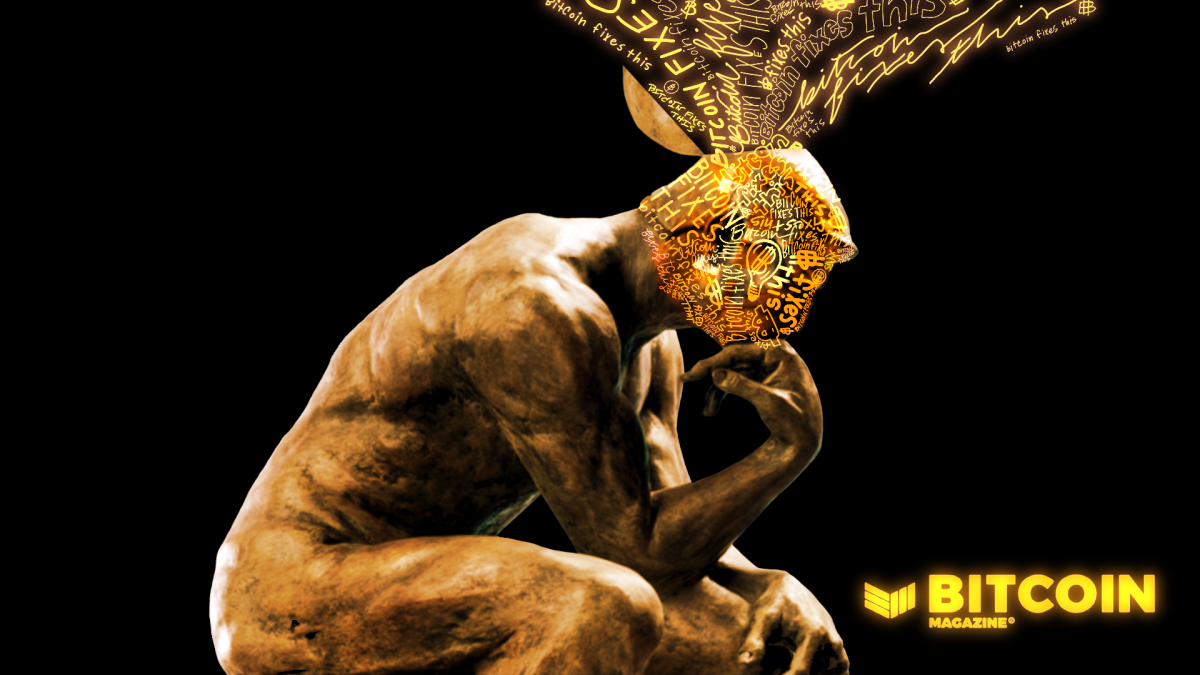
Robert Malka is a board member of the Bitcoin Today Coalition and works with Mi Primer Bitcoin to develop the curricula for its K–12 Bitcoin Certification program in El Salvador.
We stand at the crossroads of fiat’s death and generational wealth’s revival, where the possibilities are endless.
Through Bitcoin, the economic foundation of our society will be a commitment to truth rather than inflationary lies; a commitment to meaningful work rather than endless speculation; and a commitment to generational wealth rather than wasting our efforts. This opens endless possibilities, one of which is the chance to inseminate our society with a new cultural DNA.
Globalization has sapped local cultures of their distinctions and made high culture a vapid affair. We must replace it with the incubation of new cultural pursuits. As decent people opt into a Bitcoin world, they will look to each other, improving their bodies and glorifying their natural, God-given abilities. The results of that collaboration are unpredictable.
Let’s take a moment to consider one possibility among many in this potential cultural renaissance.
We begin with Adam and Eve. They bite into the apple, nude, and by the time they’ve swallowed, they’re foraging for fig leaves. They’ve realized their nakedness and that there’s something about it that they have to hide. They’re ashamed of their genitals, their lust and their defiance of God. This is a profound story deserving inquiry, but I suggest a different ideal: Imagine if they hid their genitals because their lust led them to a game — put some clothes on, only so the other could take them back off.
Why is this such an alluring idea to me? Because when we hide something, we make it rare (though rare things are not always hidden). What we make rare, we create desire for. What we desire from health, we come to love. In the case of our bodies, we sexualize what we make rare. This principle is intuitive to Bitcoiners insofar as hard money and high culture are rare. In my imagined take on Adam and Eve, that rarity creates a layer of separation between them and their lover which must be revisited, re-explored and removed to renew and deepen their intimacy — without the weight of shame.
We’ve fallen far from such play in this burdensome fiat world. Today, we have layers between us and ourselves, us and our work, and us and our communities. We’ve forgotten the feeling of being relevant. We need goals which inspire us toward a love of life for its own sake.
Enter the ancient Greeks: They were a people who created nude statues of themselves and their gods so that citizens could see, at all times, the ideal they had to pursue. Whereas today, we post pictures with filters or reduce nudity to a sickly transactional affair — trillions of images, permanently in the ether, for mere onanism without connection, the ancient Greeks dreamed of being the Riace Warriors: haughty, proud, inspiring an ecstatic mix of awe and terror.
Today, we hustle to be TikTok influencers, endlessly imitating seas of recursive imitators, plummeting to the lowest common denominator. But the Greeks saw, in the tragedy of life and living, one more reason to love it and to distinguish themselves through that love.
How did we get here? While it didn’t start in the world of fiat, Bitcoin — by dramatically lowering our time preferences — is a great reset (if I may) which lets us see ourselves anew. We get to re-evaluate what we let ourselves become. For the first time in human history, the future is ours.
Bitcoin lets us envision ourselves far into the future — not the next minute, stuck on PornHub or Tinder while plowing mystery meat into our mouths — but to think, to set high goals, to discover a genuine pursuit which provides real value. After generations of discipline toward these efforts, people become beautiful. They work out. They eat well. They compete with one another in contests of excellence. And then, most importantly, they become proud of their excellence and show it.
They elevate what it means to be rare — rare not by hiding something but by achieving something hard. It is hard to be sexy. It is hard to have the body of a viking. It is hard to be the best artist, warrior or entrepreneur. It is even harder in this world to be proud of that and then to proudly reveal it. And the first thing that becomes beautiful on a person — that is proof of one’s excellence — is the body.
In all seriousness, I believe the boldest of us will shed our clothes, even amid the elements. We will rediscover honor. We will peacock for a mate by walking barefooted, nude, through the marketplace. Initially our Puritan natures will recoil, but the sheer awe of the men and women before us will encourage us to reconsider. I speak of Adams and Eves who have learned to transmute their lust into beautiful, becoming selves and, in so doing, have shed the shame in their fig leaves.
And from there, maybe the world will follow — until clothes become simply another form of play, as we sometimes see in our better moments. May the world someday have a day where it celebrates its beauty in the transparency of nakedness — as all other animals dare to do.
This is a guest post by Robert Malka. Opinions expressed are entirely their own and do not necessarily reflect those of BTC Inc. or Bitcoin Magazine.



Comments (No)